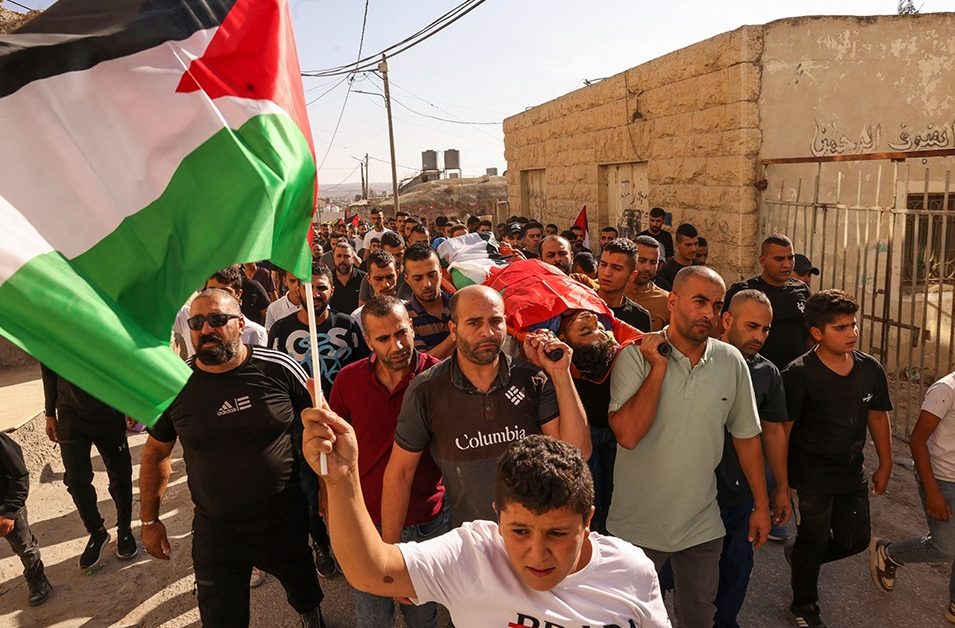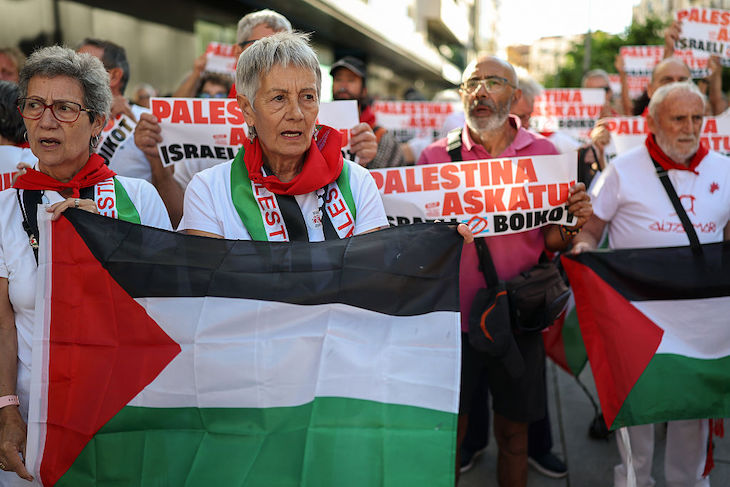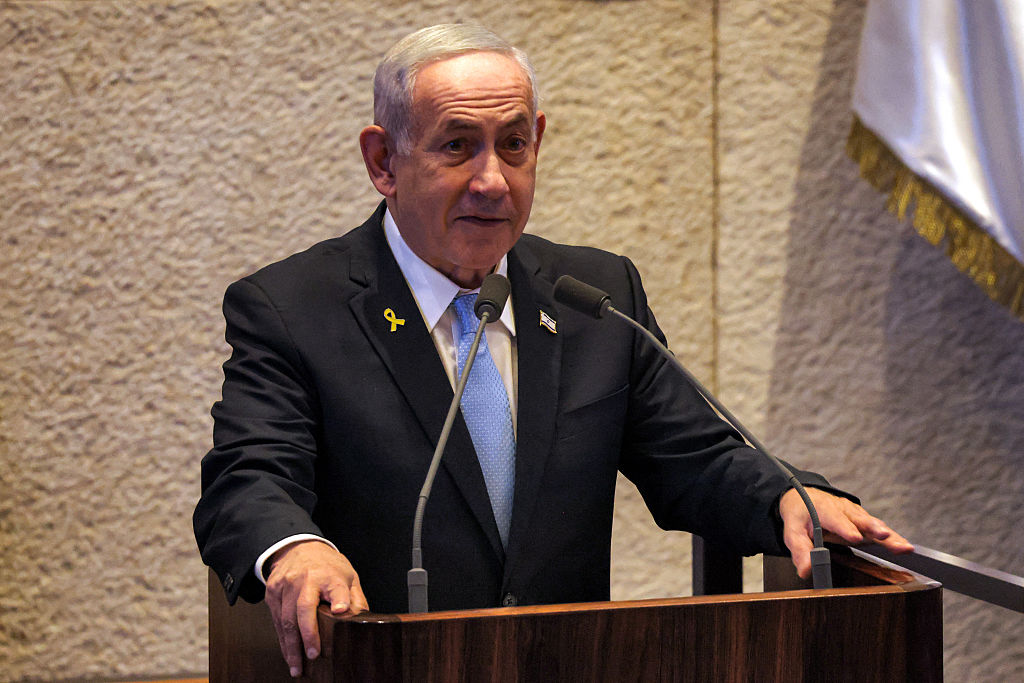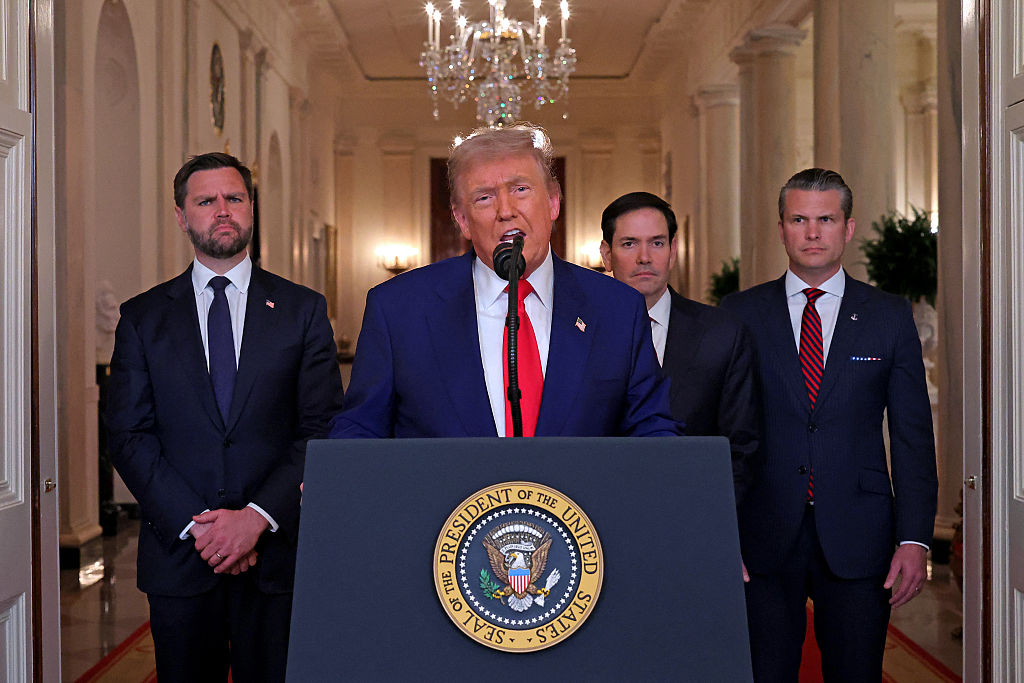Away from Gaza, things are getting worse in the West Bank. I’ve received many messages from Palestinian friends raging at what is going on there.
To get an idea of the despair of West Bank Palestinians, remember the suicidal attacks on the streets of Jerusalem a decade or so ago. Usually what happened was an ordinary Palestinian would approach a Jew, pull out a knife and stab him, realizing they would be instantly killed by the other people nearby. Obviously I condemn these acts, though it’s worth noting that they involved no message, no shouting of “Free Palestine!” There was no large organization behind them, no big political project, just pure despair.
I was at that time in Jerusalem and my Jewish friends warned me about the danger, advising me that, if I saw it coming, I should shout: “I am not a Jew!” I remember being deeply ashamed at the suggestion, knowing well that I wasn’t sure what I’d really do in such a situation. Today, in the face of settler aggression, despair among Palestinians in the West Bank is only getting worse.
Our duty in the West is to try to understand the hidden background of the ongoing shocking events: what strategies lie behind acts that appear suicidal? Analyzing the context of Hamas’s actions does not imply excuse or justification — any more than analyses of how the Nazis took power justifies Adolf Hitler. Hamas exploits the Palestinians’ plight as Hitler exploited that of ordinary Germans after World War One. The goal of the Hamas attack on October 7 wasn’t only to kill Jews, but to prevent any chances for peace in the foreseeable future — it was a war started with the aim of eternalizing war itself.
However unpalatable many find the argument, there’s a link between the attack and the unresolved status of the Palestinians in the Occupied Territories. Palestinians are treated strictly as a problem. Israel has never offered them any hope, or positively outlined their role in the state where they live. For decades they’ve been kept in limbo, exposed to daily harassment by settlers and the Israeli state. Perhaps the first thing to do is to clearly recognize the hopelessness and confusion that can give birth to acts of evil. There will be no peace in the Middle East without resolving the Palestinian question. To put it in consciously naive terms: Israel should treat its Palestinian citizens as its citizens.
Instead, the first official “basic principle” of Israel’s current government, as laid out in December last year, is that: “The Jewish people have an exclusive and inalienable right to all parts of the Land of Israel. The government will promote and develop the settlement of all parts of the Land of Israel — in the Galilee, the Negev, the Golan and Judea and Samaria.” Or, as Benjamin Netanyahu has stated: “Israel is not a state of all its citizens [but] of the Jewish people — and only it.”
In hindsight, the huge protests earlier this year against Netanyahu’s judicial reforms were the last cry of secular Zionism. Under the new government, the anti-Palestinian violence from settlers is no longer formally condemned. Even the US has voiced concern over the West Bank settlers’ attacks. In June, secretary of state Antony Blinken “conveyed concern” about them, and, as expected, got principled promises that Israel will look into it. How this will be done as long as Itamar Ben-Gvir is the national security minister is not obvious.
The presence of Ben-Gvir, leader of the ultra-nationalist Jewish Power Party, is the clearest indicator of the Netanyahu government’s shift to the right. Before entering politics, he was known to have a portrait in his living room of Israeli-American terrorist Baruch Goldstein, who, in 1994, massacred twenty-nine Palestinian Muslim worshipers and wounded 125 others in the West Bank, in what became known as the Cave of the Patriarchs massacre. As minister of national security, this person — once condemned by Israel itself as a racist — is now responsible for safeguarding the rule of law. On October 7 he announced that his ministry is purchasing 10,000 rifles to arm civilian security teams, specifically those in towns close to Israel’s borders, as well as in mixed Jewish-Arab cities and West Bank settlements.
Others in Netanyahu’s government are more extreme still. Earlier this week heritage minister Amichai Eliyahu — also a member of Jewish Power — said Israel should consider dropping a nuclear bomb on Gaza.
To find a way out, the first thing to do is to fully admit that we are dealing with a true tragedy. There is no simple solution to such a tragedy, except that advocated by Jewish Power and Hamas: the annihilation of the other side.
This article was originally published in The Spectator’s UK magazine. Subscribe to the World edition here.


























Leave a Reply